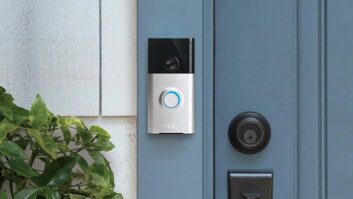When I heard that the two providers of satellite radio, Sirius and XM, had agreed to merge, my reaction was two-fold:
A) What else is new? And
B) I think it’s better than 50-50 that the Federal Communications Commission (FCC) will give the plan its blessing. (How the Federal Trade Commission’s antitrust people may feel, I really haven’t a clue.)
Almost from the day Sirius announced its plans, the rumor was there would eventually be a merger. Among those I talked to, the only real open issue was how the two sets of subscribers would be treated. I believe that for a while after any such merger the two will continue as separate services, though they will share certain key programming such as the Howard Stern Show, now a Sirius exclusive, and later have the same programs.
Then hardware makers will phase out production of radios for one service, and its subscribers will be offered some kind of hardware exchange.
As for FCC approval, let’s just say I have an insider’s outlook. Actually I got it from the mouth of the horse, in the form of FCC chairman Kevin Martin. During his appearance with Consumer Electronics Association president/CEO Gary Shapiro at International CES, Martin was asked how he would view an XM-Sirius merger. He said the FCC’s investigation would likely follow the same course taken when it studied, and turned down, a proposed merger of the two satellite TV services, DirecTV and Dish Network.
In looking at the TV proposal, the FCC saw consumers had only two basic choices when it came to accessing non-broadcast TV programming, cable and satellite. Because of local franchises, consumers had only a take-it-or-leave-it option when it came to cable, and the two satellite services offered the only competition. Eliminating one of them, the FCC felt, would create an almost totally non-competitive market, and so it blocked that deal. But Martin did add the view that with phone and utilities companies challenging cable as TV content carriers, the FCC might now take a different view.
Certainly there’s no end to competition to satellite radio. Options include standard AM and FM radio, cassette, CD, DVD and even TV audio-only receivers, and as HD Radio and digital radio broadcasting take hold, the competition will get even broader. But just looking at the obvious, most common choices for news, views and music, there really is no strong anti-competitive argument to make against a satellite radio merger.
One would like to think the FCC will make the logical decision to let the two services merge. But then again we are dealing with the government.
Another important issue was raised at a different session I attended. At that one, panelists representing home hardware makers, broadcasters and cable systems agreed the vast majority of consumers were really unaware that analog broadcasting will end in February 2009 and that new TVs will be needed to take full advantage of the coming era of digital-only TV.
All three groups it seems are working individually on consumer education projects, and though there is some coordination, a major, extensive and unified campaign is needed to avoid marketplace confusion. Individually and collectively this group has spent nearly 10 years unsuccessfully educating consumers on the use of the V-chip, and had an equally failed education effort on the uses of closed captioning. This group, which as often as not can’t agree on the time of day, now has less than 24 months to develop, finance, produce and launch a national “Love Digital TV” campaign. I doubt even Las Vegas would be willing to make book on their chance of success.













